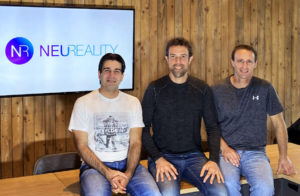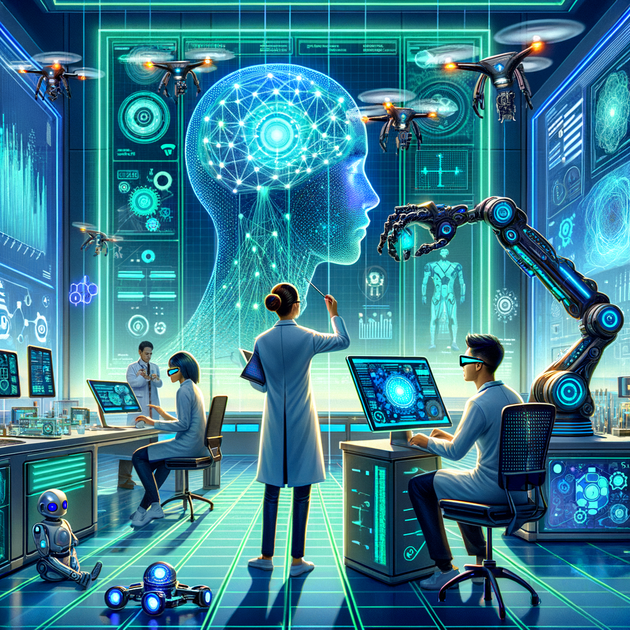Unveiling the Future of AI Development: A Deep Dive into NeuReality’s Vision
As artificial intelligence transforms industries globally at an unprecedented pace, the race to harness its full potential is on. In this dynamic landscape, balancing innovation with security and regulation is more crucial than ever. We had the pleasure of sitting down with Moshe Tanach, CEO and Co-Founder of NeuReality, to discuss the evolving AI ecosystem and NeuReality’s groundbreaking contributions.
Revolutionizing AI Infrastructure
NeuReality, a dynamic venture capital-backed startup, is reimagining AI compute and network infrastructure. Their mission? To revolutionize AI inferencing by significantly reducing costs and power consumption, thereby unlocking the full potential of GPUs and AI accelerators worldwide.
NeuReality proposes an extraordinary architecture with the promise of delivering 90% cost savings and a 10-15x boost in energy efficiency compared to traditional host CPU and NIC-centric structures.
The Geopolitical Stage: The US-China Race in AI Investment
Amidst the growing US-China rivalry in AI development, it’s fascinating to note the $32 billion annual funding proposed for AI research in the US to ensure technological leadership. Tanach emphasized the critical importance of resource allocation in maintaining the US’s competitive edge. China, meanwhile, has been making strides, particularly in computer vision technology, albeit with significant concerns about data privacy due to governmental access to data.
Despite these advancements, stricter AI regulations in the US are necessary to balance innovation with data protection, ensuring ethical AI development.
Europe’s Dual Focus: Innovation and Regulation
Turning our focus to Europe, Tanach discussed the European Union’s (EU) strong emphasis on sustainability, green technology, and comprehensive regulation. Although these initiatives position Europe as a leader in certain technologies, they might inhibit Europe’s ability to lead in AI innovation.
“If you want to expand and grow globally, you need to sell in Europe,” Tanach highlighted, underlining the region’s significant commercial power and recent capital investments in NeuReality.

Navigating International Trade and AI Security
The interplay of international trade and AI security emerged as a pivotal theme in our discussion. Tanach shed light on the complexities of preventing technology flow through traditional means such as restrictions on hardware sales.
“You can’t stop technology,” Tanach asserted. “Instead, you need to learn how to work with it, protect it, and ideally, reduce regulations. Greater alignment between nations is essential to safeguard dual-use technology from misuse by malicious actors.”
Embedding Security in AI Systems
Tanach is passionate about integrating security at the hardware and infrastructure levels. He elaborated on NeuReality’s approach to embedding security from the ground up to mitigate risks like digital fakes, cyber threats, and election interference.
NeuReality accomplishes this through data protection and operational efficiency, redesigning server architecture and leveraging advanced hardware for robust security.
NeuReality’s innovative solutions, such as directly integrating AI accelerators with their NR1 AI Inference Solution, transform server infrastructure, enhancing output efficiency while reducing costs and energy consumption significantly.
Scaling AI Models with Enhanced Security
NeuReality’s innovation doesn’t stop at hardware integration. Their hardware-based AI Hypervisor layer addresses the challenges of deploying AI models at scale by managing different processing stages without relying on vulnerability-prone CPU-hosted software.
This hardware-centric approach ensures isolated and protected client processing, adding multiple layers of security to the AI infrastructure.
The Role of the Private Sector in Shaping AI Governance
Discussing the global AI governance frameworks, Tanach emphasized that private sector entities must ensure their products meet critical security standards. NeuReality collaborates with industry leaders like Qualcomm and Cirrascale to bring innovative solutions to the market, achieving significant improvements in cost-efficiency across various AI modalities.

Neureality founders. From left to right – VP VLSI Yossi Kasus, CEO Moshe Tanach, VP Operations Tzvika Shmueli.
Looking to the Future
In closing, Tanach urged for increased investments from the US, China, and the EU in the protection of multi-modal and large language models. The collaborative efforts of neurology with industries and governments could lay the foundation for a secure, efficient, and innovative future in AI development.
“As technology evolves like an onion with many layers, it’s essential to peel back the complexities and ensure robust protection for the future,” said Tanach.
